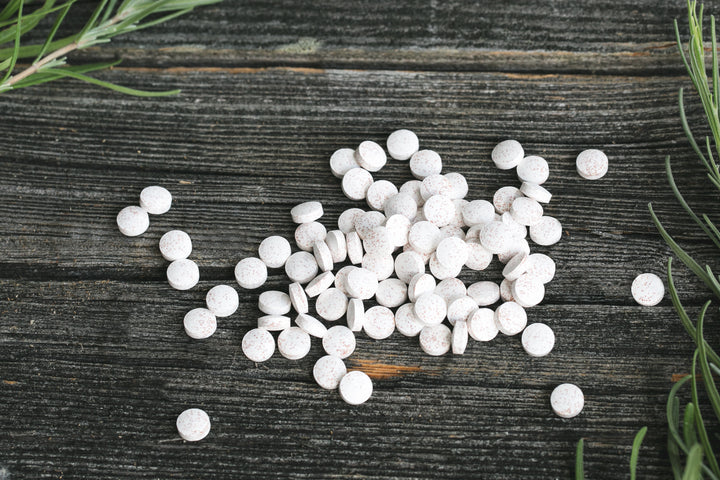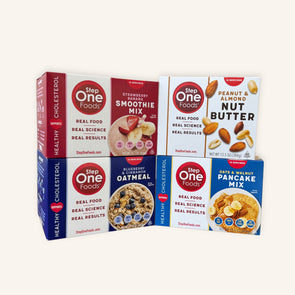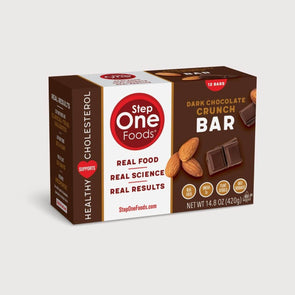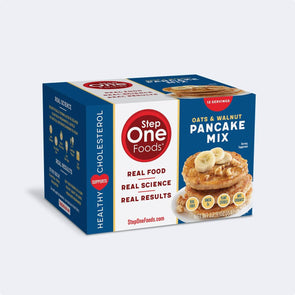

What You Need To Know About Lipitor (Atorvastatin) for Cholesterol
Cholesterol lowering can sometimes be an intimidating topic, with various medication options and alternative treatments frequently suggested to patients with cholesterol issues. One of the most common medications prescribed for treating high cholesterol is Lipitor, also known as atorvastatin. In this blog, we’ll break down everything you need to know about Lipitor, along with potential alternative treatments that may help with lowering cholesterol.
What Is Atorvastatin?
Atorvastatin is the generic name for Lipitor, which is a commonly prescribed medication for individuals with high cholesterol. Atorvastatin is part of a class of drugs called statins. Let’s dive deeper into how statins work.
Common Brand Names
Lipitor is one of the most well-known cholesterol-lowering medications, but there are various other brand-name statin medications available. These brands include Mevacor, Pravachol, Crestor, Zocor, and more. Regardless of the brand name, they are all statins and act through the same biochemical pathways.
How It Works
Atorvastatin, or Lipitor, works by blocking the enzyme responsible for cholesterol production in the liver. This helps to reduce overall cholesterol levels in the body, which can lower an individual’s risk for heart disease and other cholesterol-related conditions.
Is Lipitor a Statin?
Yes, Lipitor is a statin medication. It is the brand name of the generic atorvastatin, which works by helping block the body’s natural process for producing cholesterol.
Is This Prescription Effective for Lowering Cholesterol?
Studies have demonstrated that Lipitor can be very effective in lowering cholesterol levels in patients. Lipitor has been clinically proven to reduce LDL cholesterol, which is considered bad cholesterol. It may also help to increase HDL cholesterol, which is considered good cholesterol, and to lower triglycerides, a mostly fatty particle that is a minor contributor to total cholesterol levels. By lowering LDL, patients who take Lipitor may have a lower risk of heart attacks, strokes, and other cardiovascular events. Lipitor is widely prescribed and often used as a solution for those who are struggling with their cholesterol levels.
Understanding Your Dosage
Your dosage for Lipitor can vary based on several factors, so it’s essential to work closely with your healthcare provider to determine what dosage is right for you. Lipitor dosages can depend on your cholesterol levels, other medications you may be taking, your medical history, and more. The lowest available dose of Lipitor is 10 mg. The highest is 80 mg, and the medication is taken once per day. Take the dosage your doctor prescribes and make sure to report any side effects or changes. Your doctor will closely monitor your progress and may change your dosage if they see that it is medically appropriate to do so.
What Are the Side Effects?
When you start taking Lipitor or any statin medication, it’s good to be aware of the potential side effects. This way, you can report them immediately to your care provider. Side effects are typically dose-dependent. So you might feel fine on a lower dose of Lipitor only to feel poorly when the dose is increased. With that in mind, here are some of the most common side effects that people experience when taking Lipitor: Achy muscles or joints Liver function abnormalities Diarrhea Nausea Gas Constipation Memory issues Insomnia Nightmares These are all reversible with stopping the drug. In rarer cases, Lipitor side effects may include: Damage to kidneys Damage to liver Muscle damage Tendon rupture High blood sugar/increased risk of diabetes Allergic reactions Keeping these side effects in mind will help you stay informed and keep your doctor in the loop about any negative experiences you have from taking the medication.
Natural Alternatives
For some people, medications like Lipitor aren’t an option due to their medical history or the side effects it causes. Some people may also be able to manage their cholesterol, in part or in whole, through natural alternatives without having to use more and more medication. Of course, natural alternatives should always be discussed with a healthcare professional, but there are good options out there. Unless a person already has known heart disease or very high starting cholesterol levels, cholesterol management guidelines instruct doctors to recommend dietary and lifestyle changes before going straight to medication. By adopting a heart-healthy diet and exercising regularly, individuals may be able to lower cholesterol on their own. One potential natural alternative to prescription cholesterol medication is Step One Foods snacks and meals, which were designed specifically to help lower cholesterol through food.
Step One Foods
Step One Foods combines real food ingredients into various delicious snacks to deliver clinically meaningful levels of the four top nutrients that have been proven to lower cholesterol and improve cardiovascular health. With each snack packed with whole food fiber, plant sterols, Omega-3 fatty acids, and antioxidants, you can help improve your cholesterol levels in a natural and tasty way.
Science-backed food as medicine
Medication alone can’t always combat high cholesterol levels and your medications will work better - meaning you will need lower doses - if you are doing your part. This is why, even if you’re taking prescription medication, your doctor will likely still recommend dietary changes. So, it’s important to choose science-backed solutions when making these changes. Step One Foods has been evaluated in a controlled clinical trial conducted at Mayo Clinic and the University of Manitoba. On average, subjects lowered their LDL cholesterol by 9% in 30 days, with many individuals experiencing 20, 30, or even close to 40% LDL reductions. 80% of participants experienced positive outcomes and 95% enjoyed eating the foods.
Just as easy as taking a pill, but WAY tastier.
Eating right to lower cholesterol can be challenging, especially if you are pressed for time. Just grab a Step One Foods snack and enjoy. It’s that easy. With just two snacks a day, you may see improvement in cholesterol levels in just 30 days.
Customer Favorites
Lipitor FAQs
The cost of Lipitor can vary depending on factors such as your insurance coverage, dosage, and where you purchase it. Without insurance, Lipitor can be expensive, costing upwards of $500 for a one-month supply. Generic atorvastatin is much more affordable, ranging from $100 and up for the same dosages. However, these pills are typically covered by insurance, so you can likely pay significantly less out-of-pocket, especially if you have good coverage.
Weight gain is not a commonly reported side effect of Lipitor. With that being said, individual side effects of medications can vary from individual to individual, and you should report any weight gain or weight loss to your physician after starting a course of Lipitor.
No, Lipitor is not a blood thinner or beta blocker. Lipitor is in the drug class of statins, which work by blocking a certain enzyme in the liver to reduce overall cholesterol levels in the body.
Lipitor is generally considered a safe prescription medication, and it has been widely prescribed for patients with high LDL levels or those who have known coronary artery or vascular disease. However, it should be noted that Lipitor isn’t right for everyone. Your healthcare provider will be able to determine if Lipitor is necessary for you. As always, make sure to report any side effects you experience if your doctor does prescribe Lipitor.
Choose The Step One Foods Solution
When you want to find a natural way to help lower your cholesterol levels, Step One Foods is your solution. With various snacks to choose from, you can enjoy a tasty treat that is also healthy for your heart. Step One Foods delivers the four key nutrients that target the root cause of high cholesterol, and you simply have to incorporate two snacks per day into your diet. Take step one to better health and try Step One Foods for yourself!



